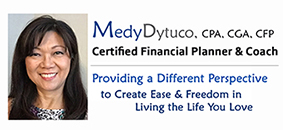10 often overlooked places to look for savings
When you search the internet for articles on the saving money, most usually say the same old obvious suggestions like turning lights off, turning the thermostat down and bringing your lunch to work.
The following are some not-so-common places to look for savings – in some very common ways we “waste” money.
As you read through the list, think about how much these may have cost you in the past, or imagine how much they could cost you in the future. As you add it all up, you may find that you have a hidden pot of gold right under your fingertips.
- The money you waste trying to save money, e.g.
- Buying things you don’t need or will rarely use just because they’re on sale
- Buying more than you need to save money and charging it to a credit card that you don’t pay off each month
- Not paying enough for parking and getting a more expensive parking ticket
- The cost of not paying attention, e.g.
- Driving distracted – and spilling your coffee, or getting a ticket or getting in an accident, or all of the above
- Getting injured or breaking something because of rushing or not paying attention to what you’re doing (like distracted walking)
- Getting stuff stolen from your car because you had valuables showing or from your bag because you didn’t pay attention
- Cost of misunderstanding due to poor or rushed communication
- Making mistakes due to excessive multi-tasking
- The cost of unnecessary taxes, e.g.
- Not using tax-free options for your savings and emergency funds (TFSAs, Universal Life Plans, Critical Illness Plans, etc.)
- Missing out on tax deductions and credits from your tax return because you really don’t know how to prepare a proper tax return
- Missing tax receipts for business expenses
- Not taking advantage of income or pension splitting where it’s beneficial
- Not using spousal RRSPs where it’s advantageous
- Not using a Personal Health Savings Plan if you’re self-employed
- Not telling your cashier when you are purchasing school supplies for students to get the BC-PST tax exemption for qualifying supplies (http://www.sbr.gov.bc.ca/documents_library/bulletins/pst_202.pdf)
- The cost of procrastination, e.g.
- Paying late penalties for your tax return
- Interest charges for paying bills late
- Not having proper insurance coverage because “the unexpected” happened before you’ve “made time” to look at getting a policy
- Additional expenses to compensate for running late (e.g. paying more for parking, taxis, courier charges, etc.)
- Missed opportunities due to over-analysis or fear of making a decision
- The cost of unnecessary risk, e.g.
- Tailgating and getting into an accident
- Crossing the border without travel insurance thinking nothing will happen if you’re not going too far or for too long
- The cost of not being prepared or not planning, e.g.
- Not looking up directions to a new destination and wasting gas, getting a distracted driving ticket or getting into an accident looking at your phone GPS
- Not packing properly for a trip and having to buy important things at your destination
- Paying high interest to use your credit card as an emergency fund
- Paying extra taxes for withdrawing your RRSPs due to an emergency
- The cost of not understanding, e.g.
- Not understanding your travel, medical, mortgage insurance and finding out too late what you’re not covered for
- Not understanding how bank mortgage insurance works and finding out too late that it may not meet your needs once you’re older
- Not understanding your life insurance and being surprised when it goes up significantly when you’re older and there are no other cheaper options
- Relying on your work or credit card for travel insurance without knowing what the coverage and limitations are
- Paying deferred sales charges (penalties) for your investments because your broker did not explain it to you and you didn’t know to ask
- The cost of letting your emotions overcome your better judgement, e.g.
- Doing something out of spite or revenge that ends up costing you more
- Jumping to conclusions and making incorrect assumptions
- Using shopping as a means to cope with emotional upset, a.k.a. retail therapy
- Going grocery shopping when you’re hungry
- Texting while you’re angry or drunk or both
- Saying yes when you really mean no
- The cost of doing it yourself (when you really don’t know what you’re doing or you’re better off doing something more productive), e.g.
- Trying to do yourself something that ended up costing you more money or taking up too much of your time.
- The cost of learning by trial and error where could you have hired professionals or take courses to help you succeed rather than paying
- Thinking that the “do it yourself” “Will” and power of attorney is “good enough”
- The cost of “dysfunctional” gift giving, e.g.
- Lending money you don’t have, to people who are continually in financial trouble, will probably never pay you back, and you’re probably “enabling”.
- Buying a gift you can’t afford just to keep up appearances.
Please share this with a friend, family member or co-worker who might get value out of this information.
For more helpful financial tips, see other articles on www.DytucoFinancialServices.com. Also feel free to contact me for a complimentary review of your financial plan or retirement plan. I can help you look at different strategies to meet your specific needs for covering your risks and saving for your retirement.
For a printer friendly version of the article, click: 10-often-overlooked-places-to-look-for-savings


